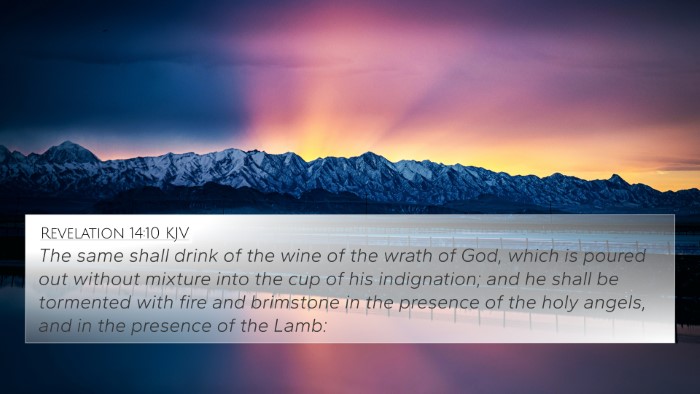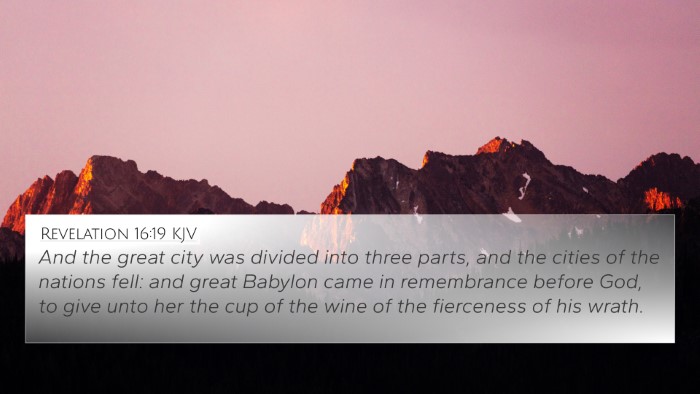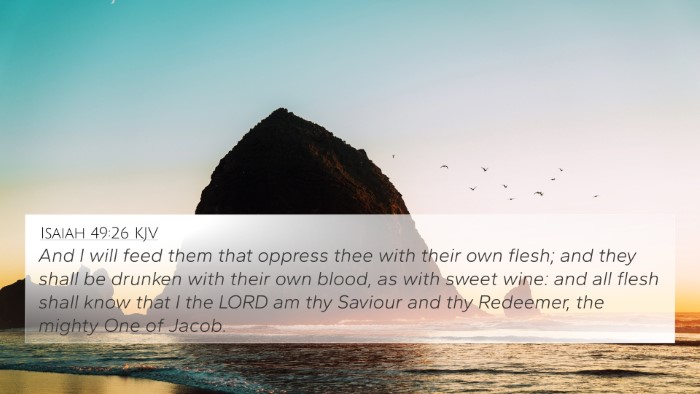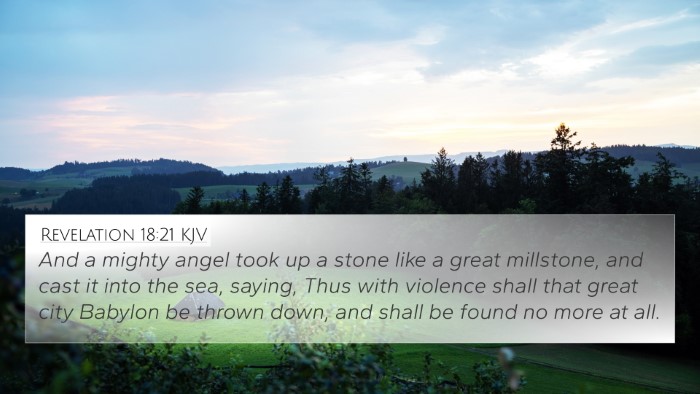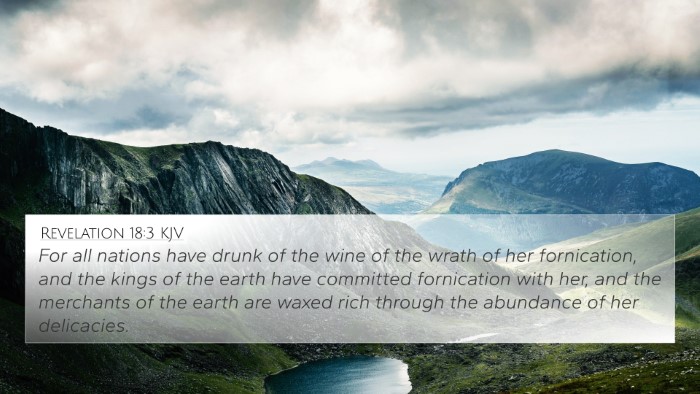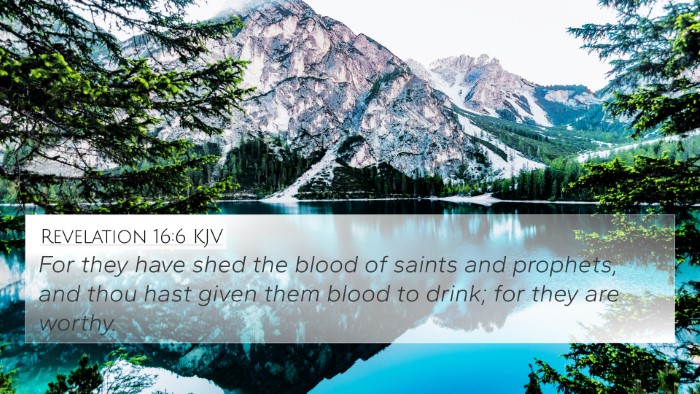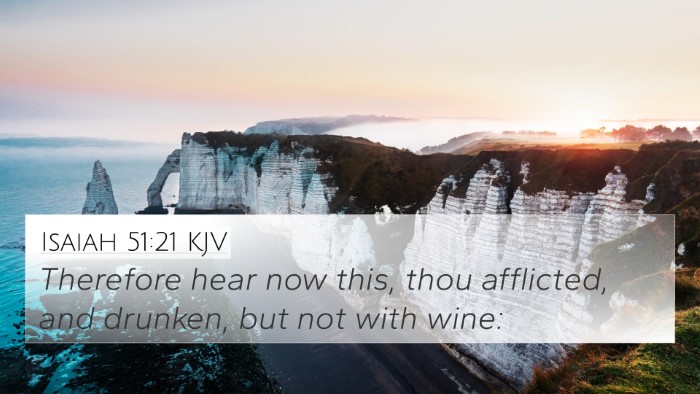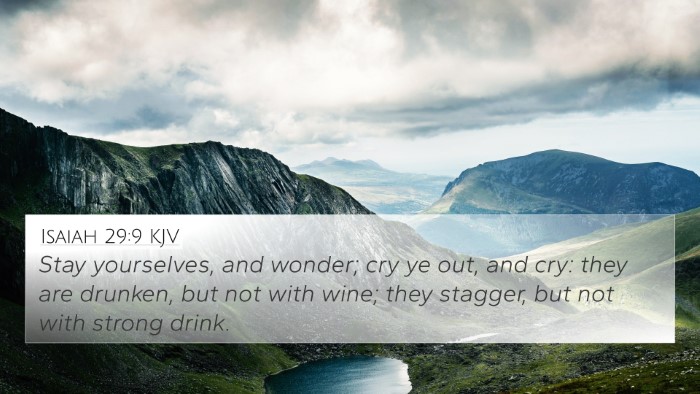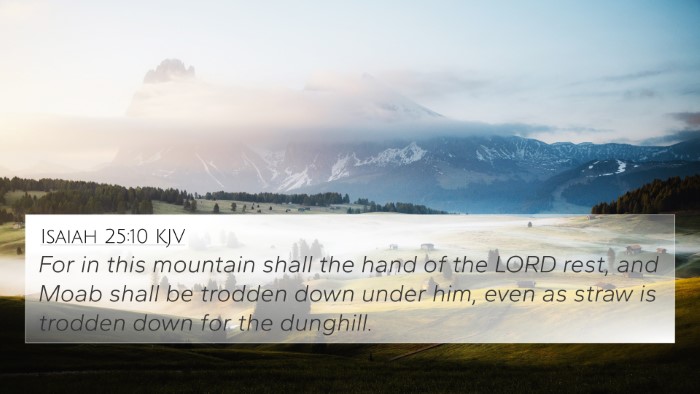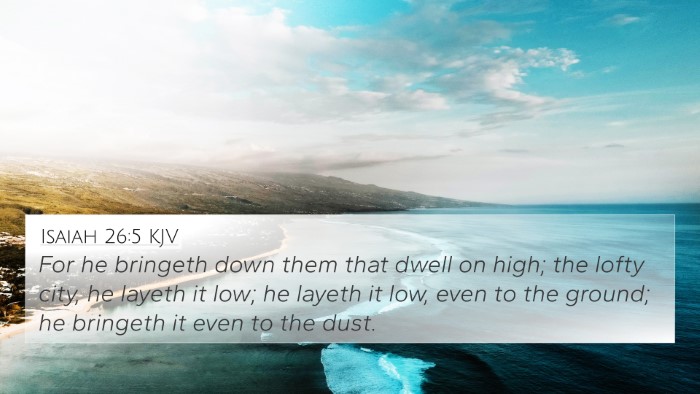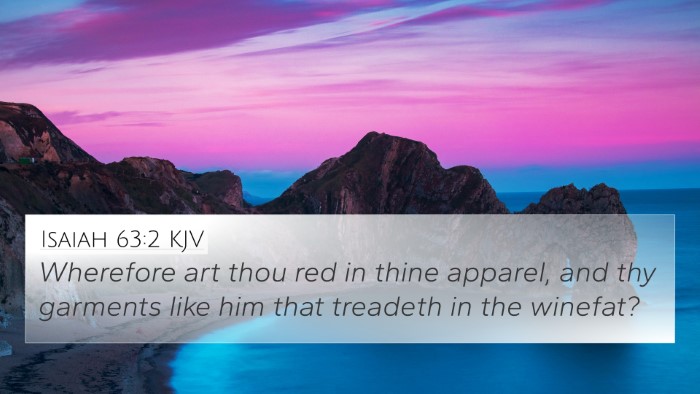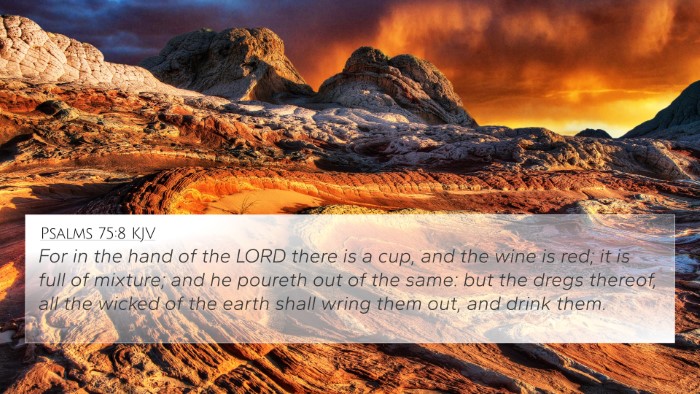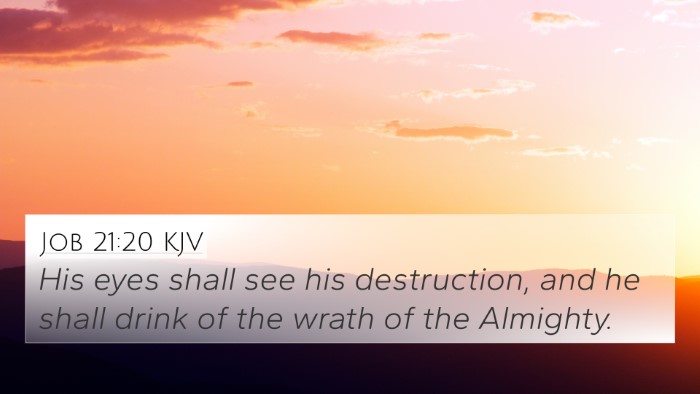Understanding Isaiah 63:6
Isaiah 63:6 states, "And I trod down the peoples in my anger, and made them drunk in my fury, and I poured out their lifeblood on the earth." This verse reflects the divine judgment and wrath of God against nations that oppose His will. In this analysis, we will draw from the insights of various public domain commentaries to enrich our understanding.
Summary of Insights
- Matthew Henry's Commentary: Henry emphasizes the vivid imagery of God’s judgment. He describes the act of treading down as a picture of divine retribution against the wicked. The "anger" of God is portrayed not as arbitrary, but as a response to evil. God’s fury serves to cleanse the earth of injustice and sin.
- Albert Barnes' Notes: Barnes highlights that the nations being judged have persistently resisted God’s will. The imagery of making them "drunk" symbolizes the overwhelming nature of God’s wrath. The lifeblood spilled is a metaphor for the destruction that results from divine judgment, reiterating the seriousness of rebellion against divine authority.
- Adam Clarke's Commentary: Clarke points to the historical context of this verse, indicating that it reflects God’s deliverance of Israel. While it demonstrates God’s power, it also serves as a warning of the consequences of opposition to God’s plans for justice and redemption.
Thematic Connections
This verse invites connections with numerous Biblical themes, showcasing God's judgments throughout scripture. Understanding Isaiah 63:6 requires an exploration of its links to other verses and themes within the Bible.
Cross-References
Here are some significant cross-references related to Isaiah 63:6:
- Isaiah 34:2: "For the Lord is enraged against all the nations, and furious against all their armies." This verse establishes the theme of divine anger toward the nations in rebellion.
- Revelation 14:10: "He will also drink the wine of God's wrath, poured full strength into the cup of his anger." This New Testament counterpart reflects similar imagery of divine judgment.
- Psalm 75:8: "For in the hand of the Lord there is a cup, and the wine is red; it is full of mixture." This aligns with the theme of God handing out judgment like a cup to be drunk by those opposing Him.
- Lamentations 2:21: "The youth and the old man lie on the ground in the streets; my young men and my young women have fallen by the sword." This complements the concept of divine anger and resultant destruction.
- Jeremiah 25:15: "Take from my hand this cup of the wine of wrath and make all the nations to whom I send you drink it." This metaphor of wrathful judgment continues the theme through prophetic literature.
- Romans 1:18: "For the wrath of God is revealed from heaven against all ungodliness and unrighteousness of men." This New Testament verse connects with themes of divine wrath seen in Isaiah.
- Zephaniah 3:8: "Therefore wait for me, declares the Lord, for the day when I rise up to seize the prey; for my decision is to gather nations..." Here the idea of divine action against nations recurs.
- Matthew 25:46: "And these will go away into eternal punishment, but the righteous into eternal life." This affirms a continued theme of divine judgment and separation of the wicked from the righteous.
- Joel 3:13: "Put in the sickle, for the harvest is ripe; go in, tread, for the winepress is full." This reference echoes the imagery of divine judgment associated with harvesting and treading down the oppressors.
- Hebrews 10:31: "It is a fearful thing to fall into the hands of the living God." This serves as a sobering reminder of God’s judgment, resonating with Isaiah's warning of impending wrath.
Comparative Analysis with Other Bible Verses
In the pursuit of understanding Isaiah 63:6, one can explore the connections between distinct Biblical texts. For example, comparing the expression of divine judgment in Isaiah with the messages of grace and redemption found in the New Testament creates a fuller picture of God’s character. For instance, while Isaiah 63:6 emphasizes judgment, passages like John 3:36 remind readers of the saving nature of Christ amid potential wrath.
Implications for Theological Study
Studying Isaiah 63:6 in connection to these cross-referenced verses promotes a deeper understanding of Biblical themes such as justice, redemption, and the nature of God’s relationship with humanity. Tools such as a Bible concordance and cross-reference guides are invaluable for identifying these intricate connections.
Conclusion
Isaiah 63:6 stands as a powerful reminder of God's sovereignty and justice. The conjunction of divine anger and the imagery of judgment depicted here serves as a call for reflection on God's holiness and the necessity of righteousness. By conducting comparative Bible verse analysis and engaging in cross-referencing Biblical texts, readers can enrich their understanding of scripture as a whole.
Additional Resources for Cross-Referencing
Engaging in Bible cross-reference studies can illuminate the interconnectedness of Scriptures. Utilizing a bible reference resource and implementing cross-referencing Bible study methods will further enhance one's understanding of the complexities within the Biblical text.



